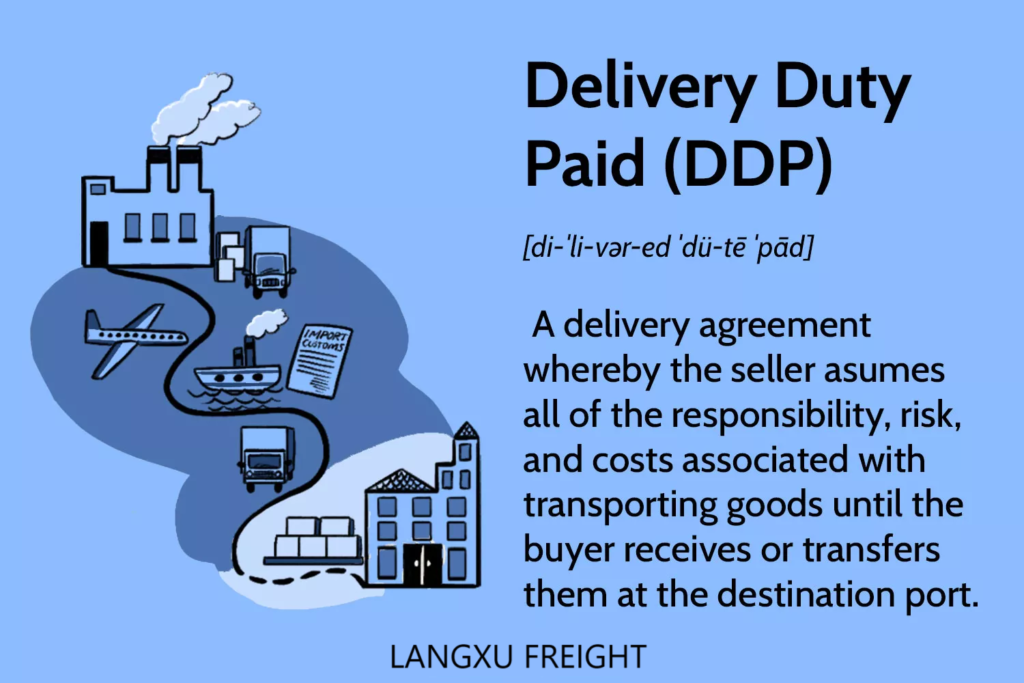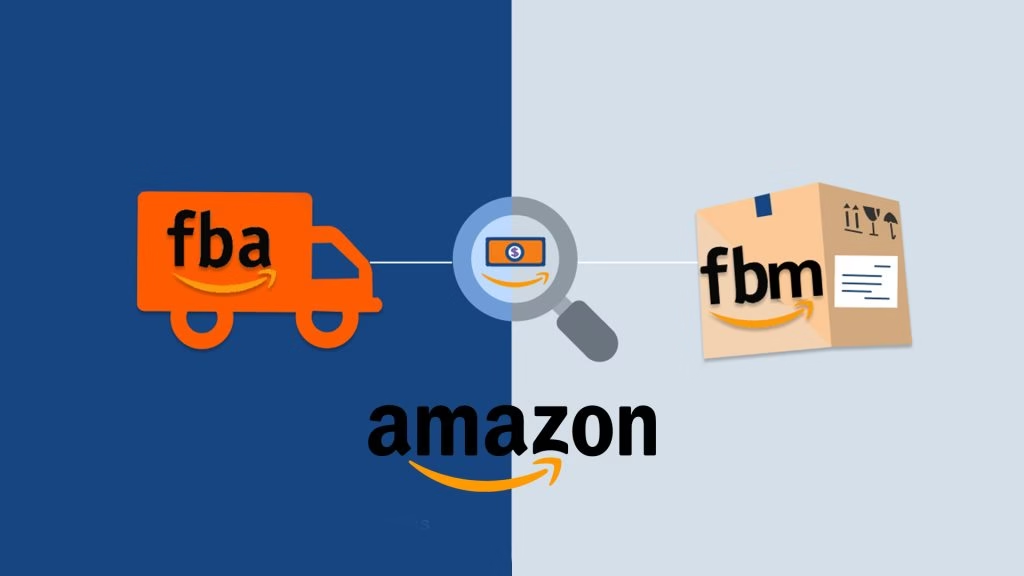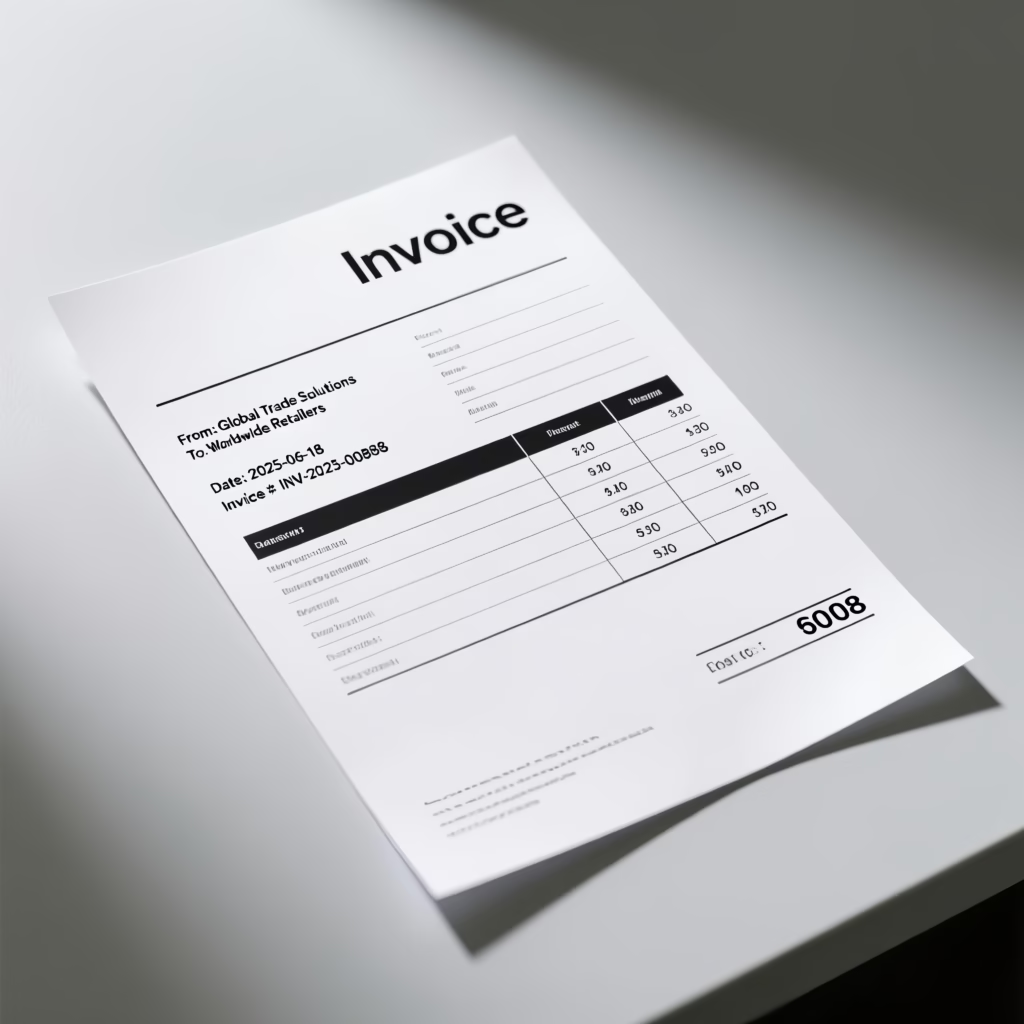Delving into DDP vs DDU: Understanding Their Characteristics, Differences, and Practical Applications for Foreign Trade Practitioners
In the realm of international trade, the acronyms DDP and DDU are often bandied about, but many practitioners might not fully grasp the nuances that distinguish them. This blog post aims to shed light on the respective characteristics and differences between DDP (Delivered Duty Paid) and DDU (Delivered Duty Unpaid), and to provide practical guidance on how to choose the appropriate option for your business.
What is DDP (Delivered Duty Paid)
DDP, short for Delivered Duty Paid, signifies that the seller bears the full responsibility for delivering the goods to the buyer’s designated destination, including handling all import clearance procedures and paying all associated taxes and fees. Essentially, the seller assumes the lion’s share of risks and costs involved in the entire transportation and customs clearance process.
Characteristics of DDP
Cost and Risk Absorption: The seller is responsible for all costs, including transportation, insurance, customs duties, taxes, and other fees. This ensures that the buyer faces minimal risks and additional expenses.
Simplified Process for the Buyer: The buyer enjoys a streamlined process, as they do not need to worry about import taxes, customs clearance, or any other related procedures. This can significantly enhance the buyer’s experience.
Seller’s Comprehensive Responsibility: The seller is accountable for ensuring that the goods arrive at the destination in good condition and comply with all contractual specifications.
Practical Case Study of DDP
Imagine a scenario where a Chinese manufacturer, ABC Electronics, sells a batch of smartwatches to a retailer in the United Kingdom. The contract specifies DDP terms. Here’s how it unfolds:
Shipping and Handling: ABC Electronics arranges for the shipment of the smartwatches from China to the UK, covering all transportation and insurance costs.
Customs Clearance: Upon arrival in the UK, ABC Electronics handles the customs clearance process, including the payment of import duties and taxes.
Delivery: The smartwatches are delivered to the retailer’s warehouse, ready for sale, with all associated costs already taken care of by ABC Electronics.
In this case, the retailer in the UK benefits from a hassle-free import process, while ABC Electronics takes on the full responsibility and risks associated with transportation and customs clearance.
What is DDU (Delivered Duty Unpaid)
On the other hand, DDU, which stands for Delivered Duty Unpaid, indicates that the seller is responsible for delivering the goods to the buyer’s designated destination, but the buyer is liable for paying any import duties and taxes upon arrival.
Characteristics of DDU
Cost Allocation: The seller is responsible for transporting the goods to the destination but does not cover import duties and taxes. These are the buyer’s responsibility.
Buyer’s Autonomy: The buyer has more control over the import process, as they are responsible for handling customs clearance and paying the relevant fees.
Potential for Lower Initial Costs: For the buyer, the initial price may appear lower since import duties and taxes are not included in the seller’s quote. However, this can lead to unexpected expenses if not managed properly.
Practical Case Study of DDU
Consider a situation where a French fashion house, Elegante Couture, orders a shipment of fabrics from an Indian supplier, XYZ Textiles. The contract specifies DDU terms. Here’s how it works:
Shipping: XYZ Textiles ships the fabrics from India to France, covering transportation and insurance costs up to the French port.
Customs Clearance and Taxes: Upon arrival in France, Elegante Couture is responsible for handling customs clearance and paying the import duties and taxes.
Delivery: The fabrics are delivered to Elegante Couture’s facility after customs clearance and payment of duties.
In this scenario, Elegante Couture has more control over the import process and timing, but they must be prepared to manage the customs clearance and associated fees.
Key Differences Between DDP vs DDU
Tax and Duty Payment
DDP: The seller pays all import duties, taxes, and other fees.
DDU: The buyer is responsible for paying import duties and taxes upon arrival.
Risk Allocation
DDP: The seller bears the majority of risks, from transportation to customs clearance.
DDU: The buyer assumes the risk of any delays or additional costs due to customs clearance and tax payment.
Operational Convenience
DDP: The buyer enjoys a streamlined process with minimal involvement in import procedures.
DDU: The buyer has more control but also more responsibilities, including handling customs clearance and paying duties.
Suitability
DDP: Often chosen when the seller is well-versed in international trade and willing to take on additional responsibilities to enhance the buyer’s experience.
DDU: Preferred when the buyer wants more control over the import process or when the seller prefers to avoid the complexities and risks associated with customs clearance.
Choosing Between DDP and DDU
Assess Your Capabilities and Risk Tolerance
Seller’s Perspective: If you are experienced in international trade and comfortable handling customs clearance and paying import duties, DDP might be a suitable choice. It can enhance your reputation and provide a seamless experience for your buyers. However, be mindful of the additional risks and costs involved.
Buyer’s Perspective: If you have the resources and expertise to handle customs clearance and prefer to have more control over the import process, DDU might be a better option. This can potentially lower your initial costs but requires careful management to avoid unexpected expenses.
Consider the Buyer’s Needs and Preferences
DDP: Ideal for buyers who want a hassle-free import process, particularly those who may lack the expertise or resources to handle customs clearance.
DDU: Suitable for buyers who are well-versed in international trade and comfortable managing the import process, or for those who want to keep initial costs low.
Understand Market Dynamics and Regulations
Market Familiarity: If you are unfamiliar with the import regulations of the destination country, DDU might be a safer option to avoid potential compliance issues.
Regulatory Changes: Be aware of any changes in import regulations or taxes that could impact your cost calculations and risk assessments.
Negotiate and Clarify Terms in the Contract
Clear Communication: Ensure that the contract clearly specifies the terms of DDP or DDU, outlining the respective responsibilities of the seller and buyer.
Contingency Planning: Include clauses to address potential delays, damages, or additional costs that might arise during the transportation and customs clearance process.
Case Study Analysis
Scenario 1: A small business owner in the US imports handcrafted goods from artisans in Thailand. Given the owner’s limited experience with international trade, opting for DDP terms would allow them to avoid the complexities of customs clearance and ensure a smoother import process.
Scenario 2: A large multinational corporation importing raw materials from various countries for its manufacturing operations. In this case, the corporation might prefer DDU terms to leverage its extensive resources and expertise in handling customs clearance, thereby reducing costs and gaining more control over the import process.

In the intricate world of international trade, understanding the nuances of DDP and DDU is crucial for both sellers and buyers. DDP offers a streamlined process with minimal involvement for the buyer but requires the seller to shoulder significant responsibilities and risks. Conversely, DDU provides the buyer with more control and potential cost savings but also more responsibilities in handling customs clearance and paying import duties.
As a foreign trade practitioner, choosing between DDP and DDU should be based on a thorough assessment of your capabilities, risk tolerance, and the specific needs and preferences of your buyers. Clear communication and detailed contract terms are essential to mitigate potential disputes and ensure a smooth transaction. By making an informed decision, you can optimize your international trade operations, enhance customer satisfaction, and navigate the complexities of global commerce with confidence.
Langxu Freight is one of the more famous freight forwarding companies in China.If you need to purchase any goods in China, or are ready to start an e-commerce business/dropshipping business, let us give you the greatest help. If you need to purchase goods in China, we can provide you with comprehensive freight forwarding services, including quality supplier selection, product quality inspection, free warehousing in China, customs declaration, a variety of reliable and safe transportation plans, and on-time delivery services.
Amazon Launches “Haul” to Sell Low-Priced Items to Compete with Temu, Shein
Below is a deeper look at what Haul is, how it works, why Amazon is…
Amazon Logistics Models: A Comprehensive Guide to FBA, FBM, and Third-Party Fulfillment
In the dynamic landscape of e-commerce, logistics plays a pivotal role in determining the success…
A Comprehensive Guide to Commercial Invoices (CI) in Cross-Border Logistics
Discover the essential elements of commercial invoices in cross-border logistics. Our comprehensive guide simplifies the…





Pingback: Best freight forwarder China to Netherlands
Pingback: What does door-to-door delivery mean